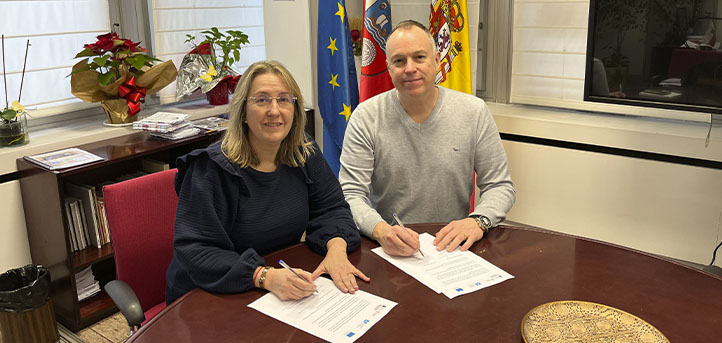The Ministry of Education of Cantabria (Spain) will collaborate in the Erasmus+ DigitalTA (2022-25) project led by the European University of the Atlantic (UNEATLANTICO) with the participation of multiple European academichttps://www.uneatlantico.es/ institutions.
The collaboration was consolidated after the signing of an agreement by María Mercedes García Pérez, General Director of Innovation and Educational Inspection of the Government of Cantabria, and Josep Alemany Iturriaga, Project Manager of the DigitalTA project and a professor at UNEATLANTICO.
The agreement signed at the Regional Ministry, is of utmost importance for the project’s successful development and demonstrates how well the two institutions agree on projects aimed at improving education in Cantabria and the European Community.
It is worth recalling that the Erasmus + DigitalTA project (2022-25) aims to improve the practical education of teacher training students and young teachers in European Union countries, curtailing professional attrition when transitioning between learning to teach and teaching to learn.
This collaboration, under the coordination and supervision of the Technical Unit of Evaluation and Accreditation, with further collaboration from the Teaching Consultancy responsible for the Development of Digital Competence in Cantabria, will include the dissemination and outreach of the project’s activities, among other actions. Furthermore, it will involve participation from different stakeholders (graduates, master’s students, professors, etc.) during the design of the project’s digital tools and pilot experiences, review processes, and co-design of the digital tools, as well as in the pilot training sessions. Their support will also be available during the design process of the new tutoring/mentoring tool, participation in the pilot experiences, and during the platform’s development.
Financed by the European Union. The views and opinions expressed are solely those of the author(s) and do not necessarily reflect those of the European Union. Neither the European Union nor the granting authority can be held responsible for them.



